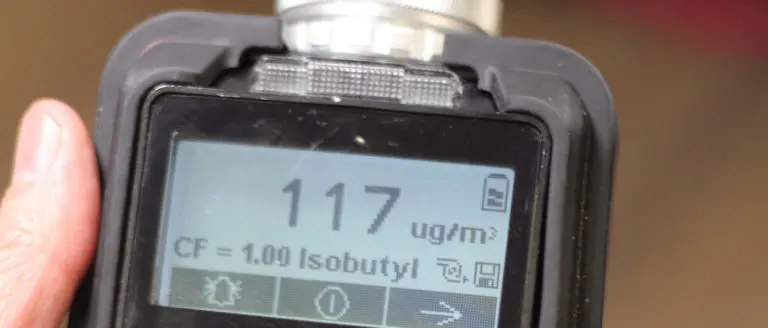CFR 21 VOC Testing in Food Contact Substances
The stringent requirements outlined in CFR Title 21, Part 175.300 govern the use of materials and substances that come into contact with food during processing, packaging, storage, or distribution. Volatile Organic Compounds (VOCs) are a critical concern in this context due to their potential migration from food-contact surfaces into the food itself.
This service focuses on identifying and quantifying VOCs present in materials used for food-contact applications, ensuring compliance with CFR 21 Part 175.300. The process involves rigorous laboratory analysis to ensure that no harmful substances are transferred from the packaging or container into the food.
The testing protocol is designed to address several key parameters, including but not limited to:
- VOC identification through gas chromatography-mass spectrometry (GC-MS)
- Quantification of VOCs using quantitative GC-MS
- Analysis under high vacuum conditions to simulate real-world exposure scenarios
- Comprehensive reporting including compound structure and potential migration levels
The importance of this service cannot be overstated, as it directly impacts public health. Non-compliance can lead to significant legal repercussions, reputational damage, and financial losses for manufacturers.
Achieving compliance involves:
- Thorough preparation of the sample (e.g., extraction solvents)
- Precise handling of samples throughout testing
- Use of calibrated instruments to ensure accurate measurement
- Adherence to strict quality control measures at every stage of analysis
The following tables provide a detailed overview of the applied standards and test methods used in this service:
| Standard | Description |
|---|---|
| CFR 21, Part 175.300 | Regulations governing the use of substances in food-contact articles. |
| ISO 6978:2014 | Gas chromatography-mass spectrometry for the determination of volatile organic compounds. |
| Method | Description |
|---|---|
| Gas Chromatography-Mass Spectrometry (GC-MS) | Used for both identification and quantification of VOCs. |
| High Vacuum Exposure Simulation | Recreates real-world conditions to assess potential migration. |
The results from this testing are crucial for ensuring that the materials used in food-contact applications do not release harmful VOCs into the food. This service is essential for quality managers, compliance officers, and R&D engineers who need to ensure their products meet regulatory requirements.
Failure to comply with CFR 21 Part 175.300 can lead to significant consequences:
- Legal action from consumers or regulatory bodies
- Product recalls and market withdrawal
- Reputational damage affecting brand integrity
- Economic losses due to lost sales and increased production costs
Applied Standards
| Standard | Description |
|---|---|
| CFR 21, Part 175.300 | Regulations governing the use of substances in food-contact articles. |
| ISO 6978:2014 | Gas chromatography-mass spectrometry for the determination of volatile organic compounds. |
The testing process adheres to these standards, ensuring accuracy and reliability. Compliance with CFR 21 Part 175.300 is paramount, as any failure can have severe repercussions.
To ensure thorough compliance, the following methods are employed:
- Gas Chromatography-Mass Spectrometry (GC-MS) for identification and quantification of VOCs
- High Vacuum Exposure Simulation to mimic real-world conditions during testing
Customer Impact and Satisfaction
The results from this testing are critical for ensuring that food-contact materials do not release harmful compounds into the food. This service directly impacts customer satisfaction by:
- Avoiding product recalls due to non-compliance with CFR 21 Part 175.300.
- Ensuring that products meet regulatory standards, thereby protecting the brand's reputation.
- Reducing the risk of legal action and associated costs.
Customers who use this service can be confident in their compliance with regulations and the safety of their products. The detailed reports provided help customers understand the potential risks and take proactive measures to mitigate them.
International Acceptance and Recognition
- The testing methods used comply with international standards, ensuring that results are universally accepted.
- Compliance with CFR 21 Part 175.300 is recognized by regulatory bodies worldwide, enhancing the global marketability of products.
The service is designed to meet the expectations of international customers and ensure that they receive accurate, reliable results that are recognized globally.





